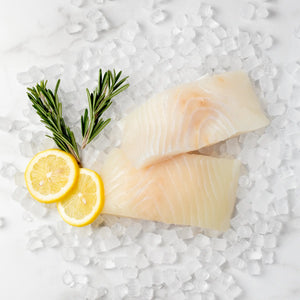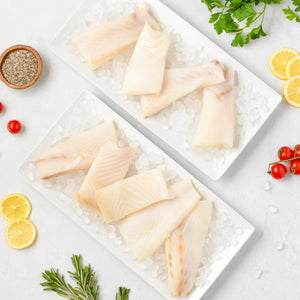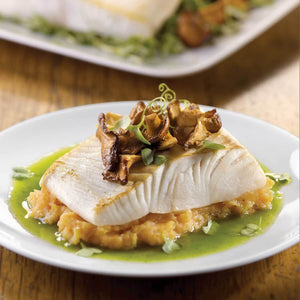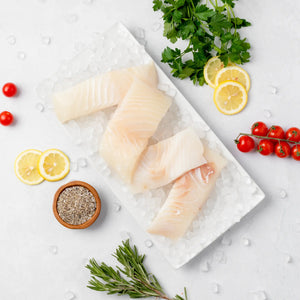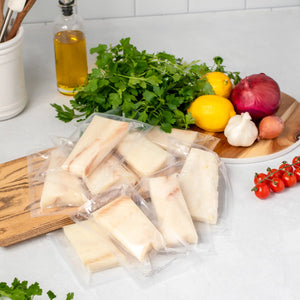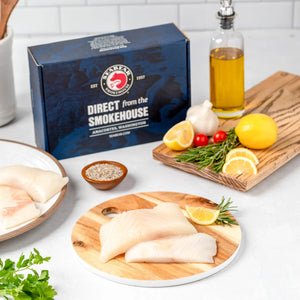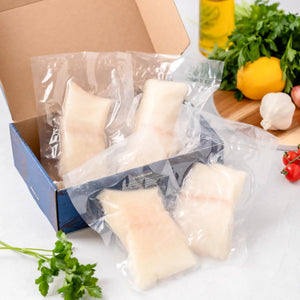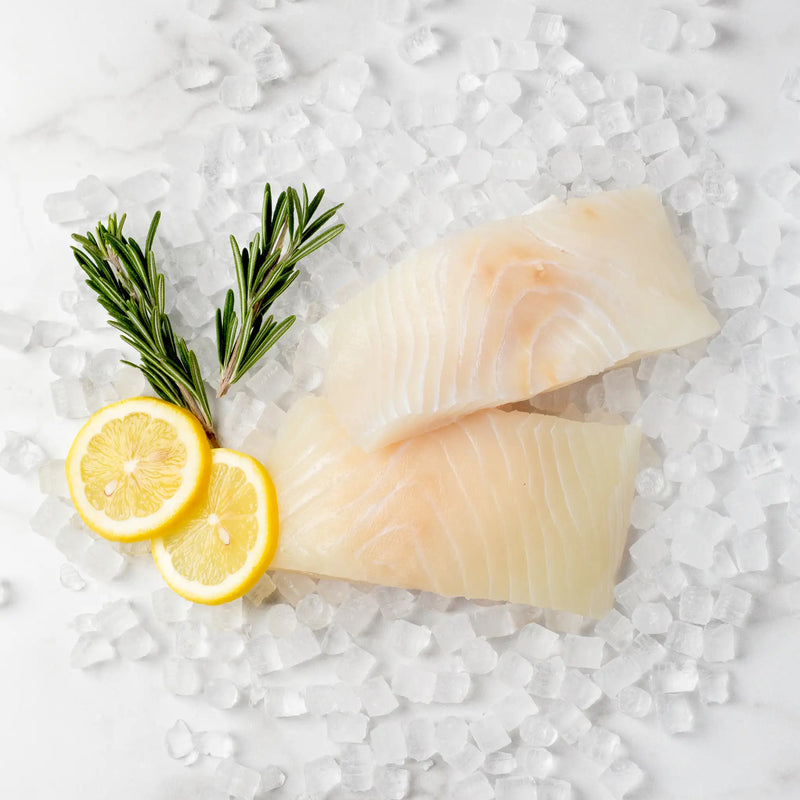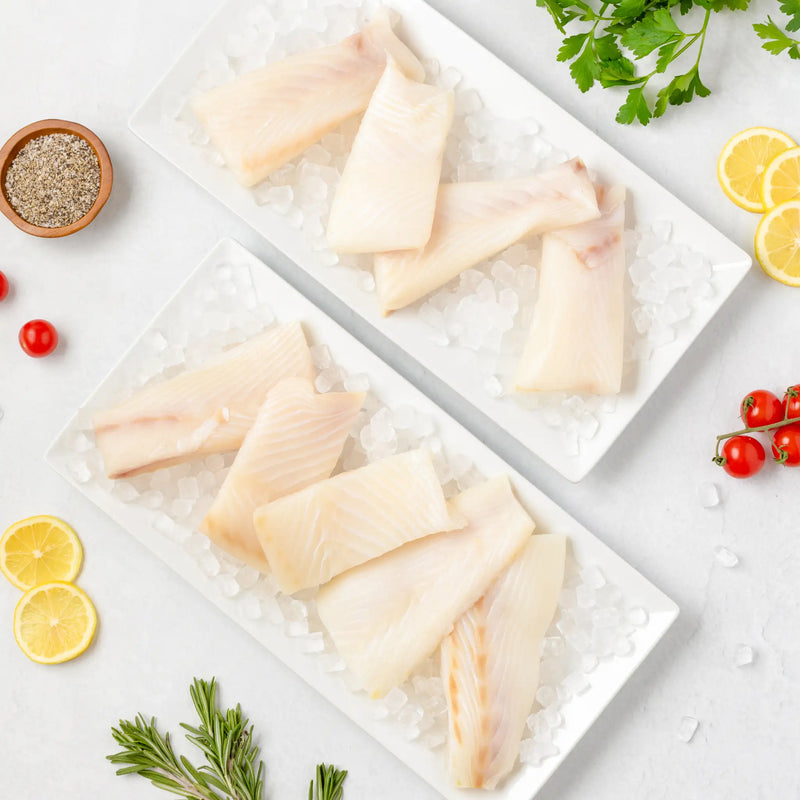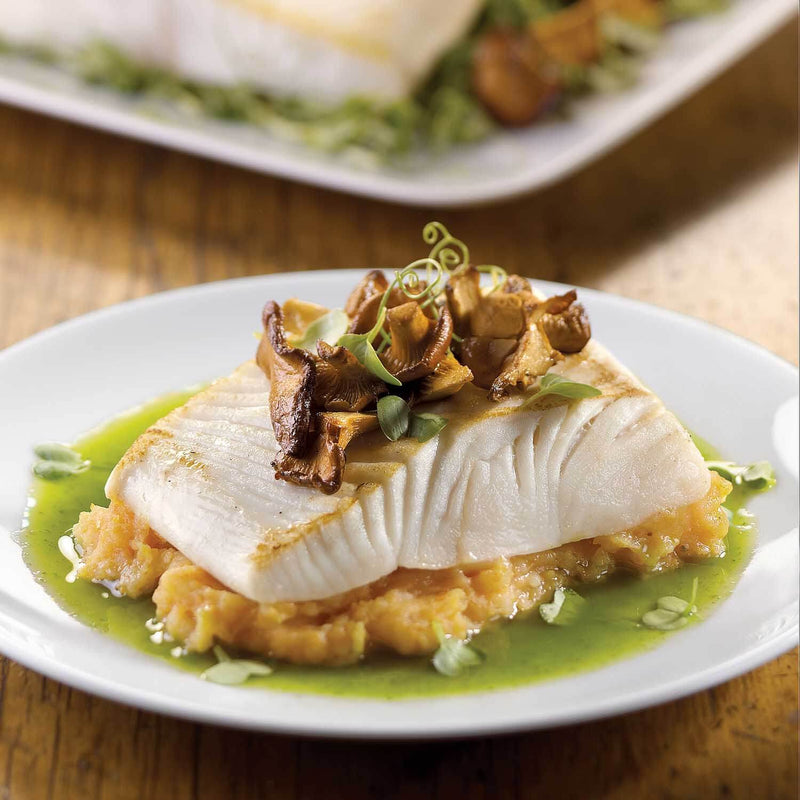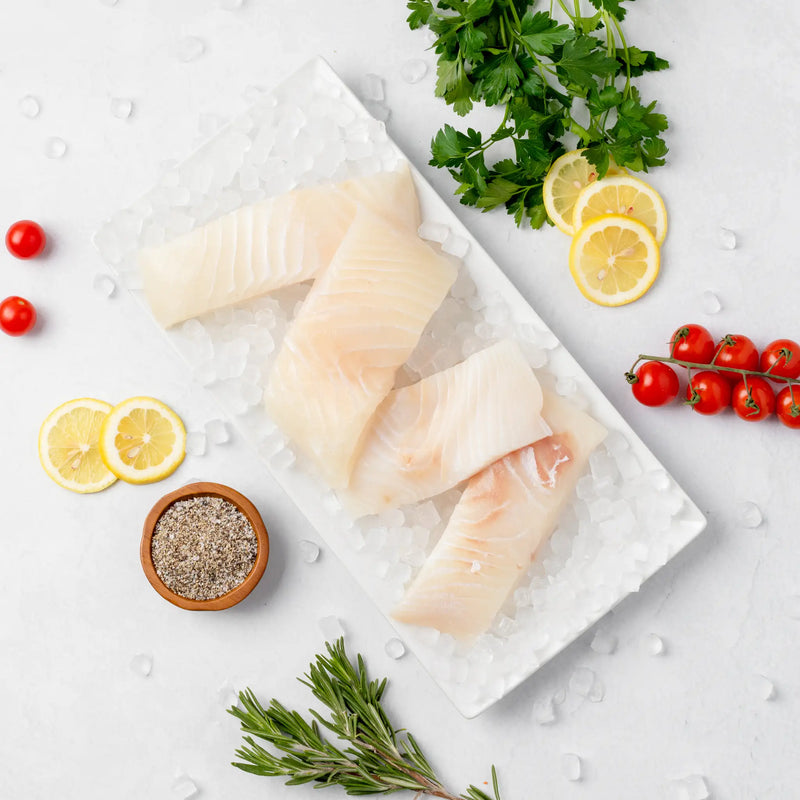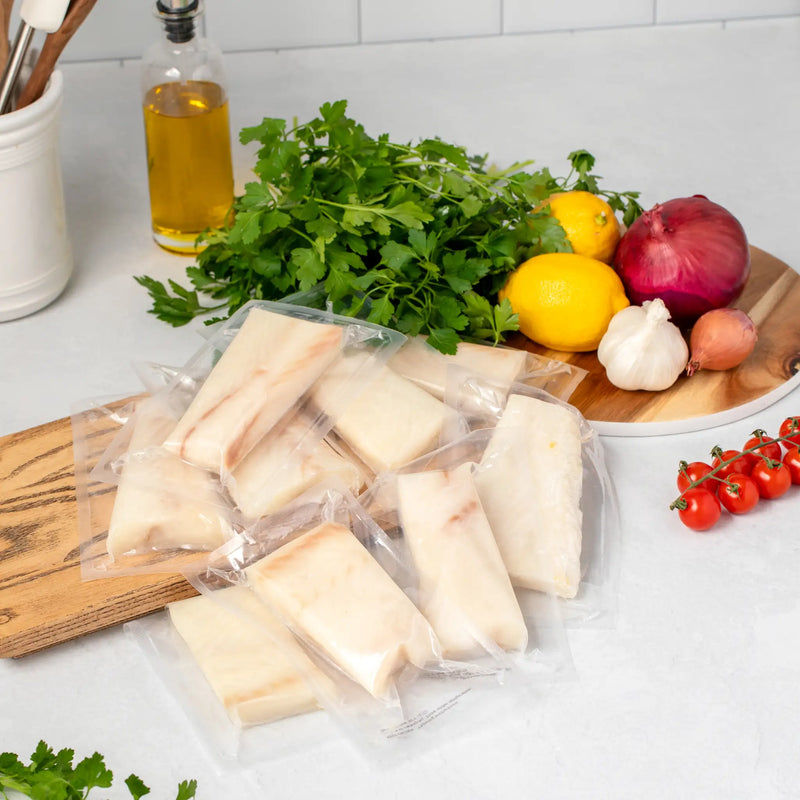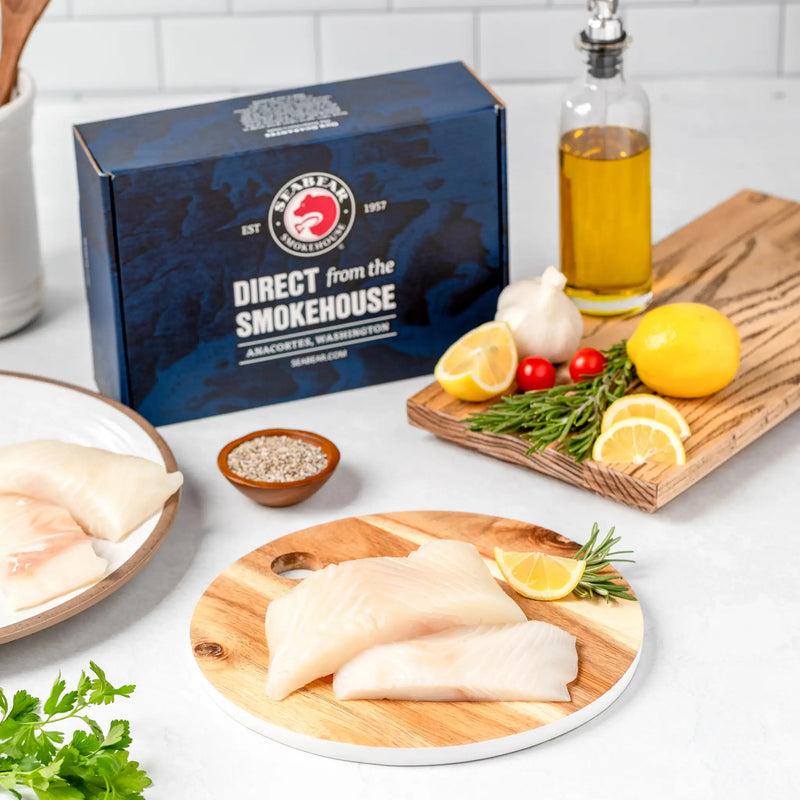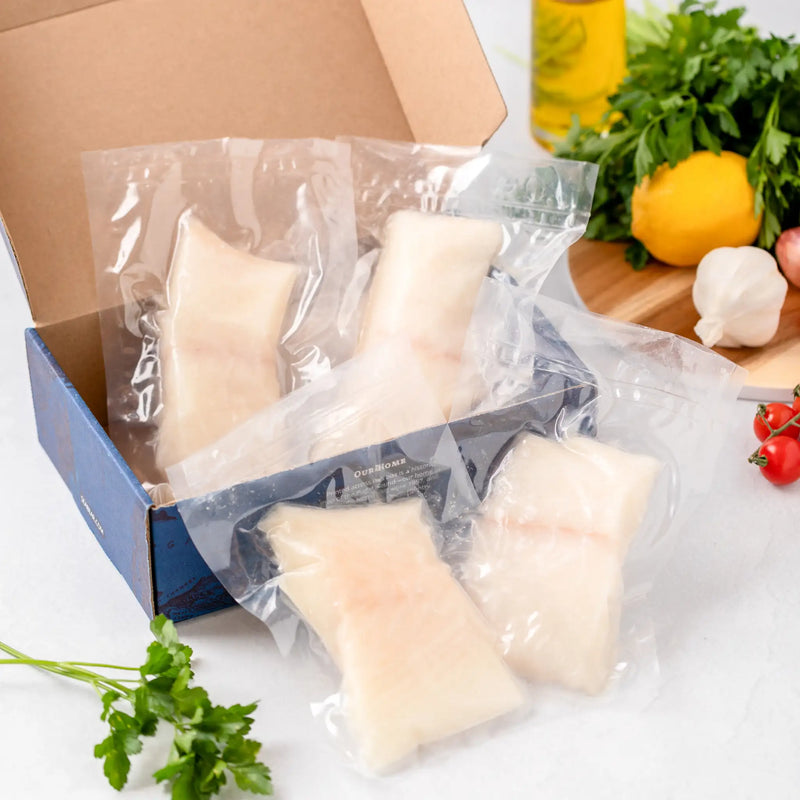Free standard shipping on orders of $125 or more — ends 2/1
Free standard shipping on orders of $125 or more — ends 2/1
Free standard shipping on orders of $125 or more — ends 2/1
Free standard shipping on orders of $125 or more — ends 2/1
Your Cart
Storing
Alaskan halibut has been quick-frozen to lock in the flavor and nutrients, and shipped to you on dry ice. Upon arrival, please freeze or refrigerate. Fillets will keep in the freezer for approximately 3-4 months; once thawed they should be cooked and used within 1-2 days.
Once a frozen fillet is thawed, it can be re-frozen though we do not recommend it, as taste and quality may begin to suffer. No fillet should be re-frozen if it has been thawed 2 days or longer.
Thawing
The best way to thaw your halibut is to leave it in the refrigerator overnight (in its pouch), allowing at least 8-10 hours. Trying to rush the process by thawing at room temperature or placing the frozen pouch in warm water is definitely NOT recommended, as it can cause the halibut to lose flavor and texture. If you must thaw your halibut quickly, place the frozen pouch in a bowl of cool water for 30-45 minutes, and then continue thawing in refrigerator.
Regardless of how you like to cook your halibut (bake, broil, grill, sauté or poach), we believe the key to success is to SLOW DOWN! Slow cooking locks in the natural juices, for a more succulent flavor. When the flesh turns from translucent to just about completely opaque, and flakes easily with a fork, it is done. Here are some specific guidelines by cooking method:
TO BAKE: Pre-heat oven to 275°. Place halibut fillet on a cookie sheet brushed with olive oil, and bake for approximately 20 minutes. Do not flip fillet.
TO GRILL: Brush grill with olive oil PRIOR to heating. Once the grill is medium-hot (you should be able to hold your hand 6 inches above the grill for 5 seconds), brush the top of each halibut fillet with olive oil, and place on the grill. Season with salt and pepper. Grill fillet until the sides begin to turn opaque. Flip once, and continue grilling until fully cooked.
TO BROIL: Place halibut fillet on a broiler pan brushed with olive oil, on oven’s middle rack. Broil about 10 minutes or so, though keep watching to avoid overcooking. Do not flip fillet.
Serving Suggestions
Take fresh pineapple & cut into rings for the grill (canned are ok too!) - grill until the sugars start to caramelize, then allow to cool. Cut into 1/2 inch cubes, and in a large bowl mix with diced red bell peppers, chopped cilantro, chopped kiwi fruit and red pepper flakes (to taste).
Toss with olive oil or red wine vinegar as desired, and enjoy!
Wild Halibut
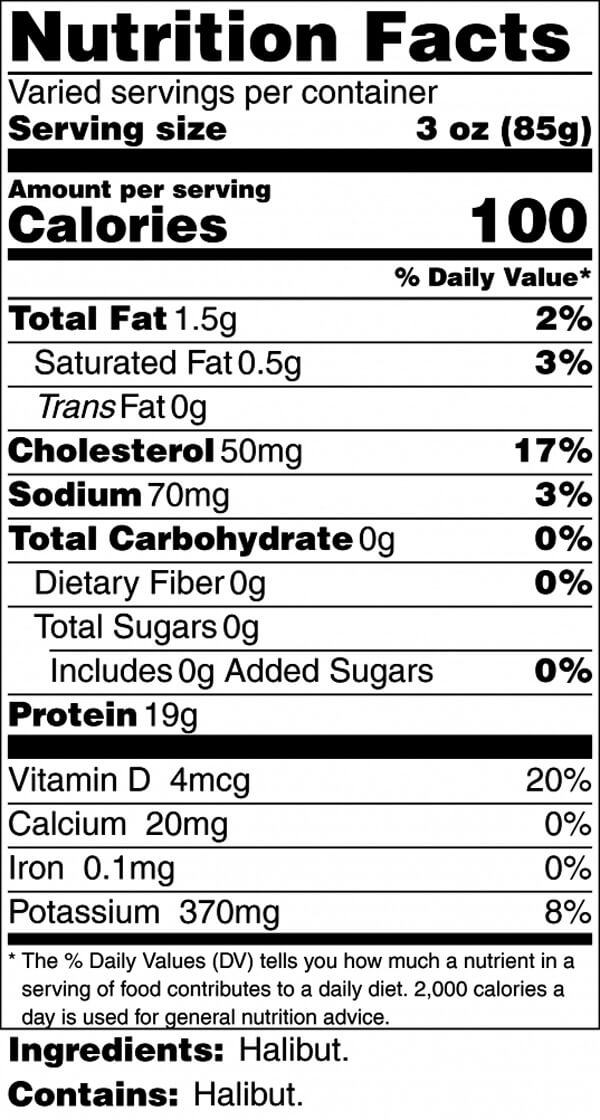


RISK FREE IS OUR GUARANTEE
THE FISHERMAN’S OATH
Since 1957, we’ve taken great pride in sharing with you the bounty of the Pacific Northwest. If for any reason you are not absolutely thrilled with our products and service, we will immediately replace your order, refund your money, or do whatever it takes to make it right. That is our promise.







